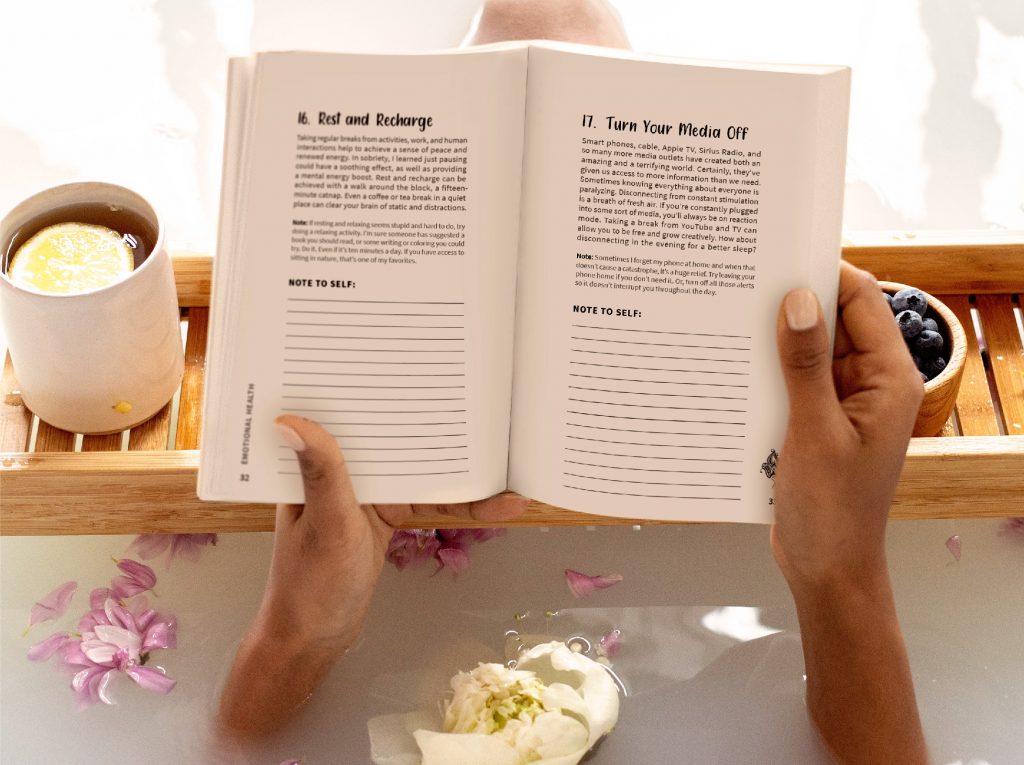Learning How To Ask For Help Is Necessary For Long-Term Recovery
If I had a nickel for every time I’ve had to ask for help, I’d be a wealthy lady! Kidding aside, I’m so grateful that I learned how to ask for help because it has led me to healing and recovery every single time. In recovery support groups you learn that we are “we” programs. Why? Because we can’t do any of this alone.
I didn’t know how to ask for help when I was younger. Keep it inside and keep it to yourself was our family motto. When we weren’t shouting at each other, that is. But, we don’t live like that today. I’m sure I learned the hard way because that’s my favorite, but I know how and who to ask for help with everything and anything. I still have to ask for help all the time. I had to last week.
The exciting news? I have so much experience with this, I humbled myself in two seconds and made the appropriate calls, and I feel better already. I may write about recovery and wellness but it doesn’t mean I’m great at it all the time. The struggle is real. My main point always is that being healthy and happy takes work. Asking for help is one of the main ingredients in that work, that’s why it’s in my book. So, let’s learn about asking for help.
How To Ask For Help 1) Identify The Problem
Identifying the problem is number one. If you grew up in discomfort, you might excel at living in difficult, even painful circumstances, for a long time. That doesn’t mean it’s good for you. These detached folks, myself included, often need to take time to think about what’s bothering them and why. Don’t get me wrong, if you’re addicted to drugs, or addicted to anything for that matter, that’s a pretty clear problem. But, some of us live in unhappy jobs, unhappy relationships, codependency, enabling, or a host of other self-sabotaging behaviors that don’t help us or the ones we love.
Journal it out. Take the time to write out your feelings and give yourself time to get clarity around them. Whatever the issues are should come clear. For me, recently I felt a bit lost and uncentered. When I talked to friends and wrote about my feelings, it was clear I felt unanchored. For me, I need to attend recovery groups and have sponsors and I was missing some of that from the pandemic. I immediately asked two women I know for help and it’s been amazing how quickly I’ve found myself and my footing. My mantra: recovery takes work but when you get better at it it’s so easy and worth it.
How To Ask For Help 2) What’s Holding You Back From Asking?
Asking for help isn’t easy and definitely doesn’t come naturally for most so don’t feel bad. But, sometimes there are bigger hurdles holding us back from asking for help. Maybe there is someone or some force in your life that doesn’t like therapy or asking for help. Or maybe there’s an issue of privacy where you feel you might be betraying someone, or the family by asking for help. That can be tough. However, you should still seek help in the safest ways possible and we’ll talk about that.
If there isn’t someone holding you back, what else could be stopping you? Many people would say fear of change or fear of discomfort would keep them from trying to remedy some issue. If you’ve been living with alcohol as a coping technique or in a relationship that isn’t healthy but you’re afraid to lose it, these are all understandable problems.
It comes down to how much you want to change and how hard are you willing to work for it. These are questions you may need some time with, so I’d advise writing about what your goals are and if whatever “issue” you’re having is going to prevent you from having the life that you want. A life where you are healthy, happy, connected, and fulfilled you get the idea. Just write about it and get some clarity about what’s really going on.
How To Ask For Help 3) Where Do You Look For Help
Once you’ve thought about, written about, or considered carefully what you need help with, you can take action. If you have a problem you can describe then you are ready to look for help. There is tons of help available once you start seeking it. If addiction is the problem, this is the time to go online and do research on what you need help with and who offers treatment. Getting help for an addiction can run the gamut in terms of treatment.
You may need in-patient treatment or you may just need a recovery support group, but you won’t know until you start to understand how serious your problem is and what are the different treatment options.
If you go online, there will be more than you can even handle so, if need be, start with a hotline. Get information. You can always talk to an intake counselor at a treatment facility, call your health insurance, look on Psychology Today for therapists or addiction specialists or contact a local 12-step group.
Use this formula for whatever your issue is–exercise, look online for local gyms, workout programs, trainers, etc. If it’s a relationship problem, start to read about it and see what others have done or recommend. There is a support group, self-help book, rehab, therapist, religious figure, or anything else for whatever it is you’ve got going on.
How To Ask For Help: Who Can You Ask
It is not unusual to not have anyone in your circle you can ask for help. If you find yourself in that situation, don’t feel bad or lost, many of us have been there. If you know what’s troubling you and how to do research online, then you are more than halfway there. Now is the moment to consider who you would feel safest with and then find them.
I’ve had times when paying a therapist was the most appropriate situation for me because I wanted privacy and a professional opinion. Other times, especially with my addiction issues, I used 12-step recovery groups. I wasn’t concerned about privacy (although it is anonymous and I didn’t have an endless budget to stay in rehab for years). There are a million other types of recovery groups if 12-step is not for you, so I’m not pitching it.
Consider if you want, or need professional help. While it comes with an expense (though check your insurance), professional help comes with one-on-one care. If you need help getting physically healthy, investigate whether a nutritionist, weightloss-group, or trainer would help.
Personally, I’ve used The Sculpt Society over the past two years for exercise and it’s been incredible. My sister-in-law recommended it. Instead of long, hard workouts that only punished my body, I do targeted sculpt classes that actually hit the places in my body that need attention. I also use meal plans. We rotate between three companies because it turns out, it provides lots of options and is the best way for me to manage portion control.
How To Ask For Help: Be Selective About Who You Ask
Don’t forget, when it comes to getting help, be selective. This is your health and wellness and you only want people who know what they’re doing working on you. I’ve had therapists who were amazing and not so amazing. I’ve had physical trainers who were fabulous and ones who have injured me. My experience has taught me that when it comes to who we’re putting in charge of our health, do your research. Look for bad reviews. Don’t take the cheapest deal. You are precious cargo! Take the time to look at what’s troubling you and find someone or something that can help you feel better!
Read: How To Stop The Self Sabotage
Check out my book 100
Tips For Growing Up

Follow us on Instagram
Like us on Facebook
More Articles To Read
This Is How To Stop An Argument Cold
22 Tips For Sober Life This Summer
30 Days Sober Has This Affect On Your Body





















